CNS 30TH ANNIVERSARY IMPACT REPORT
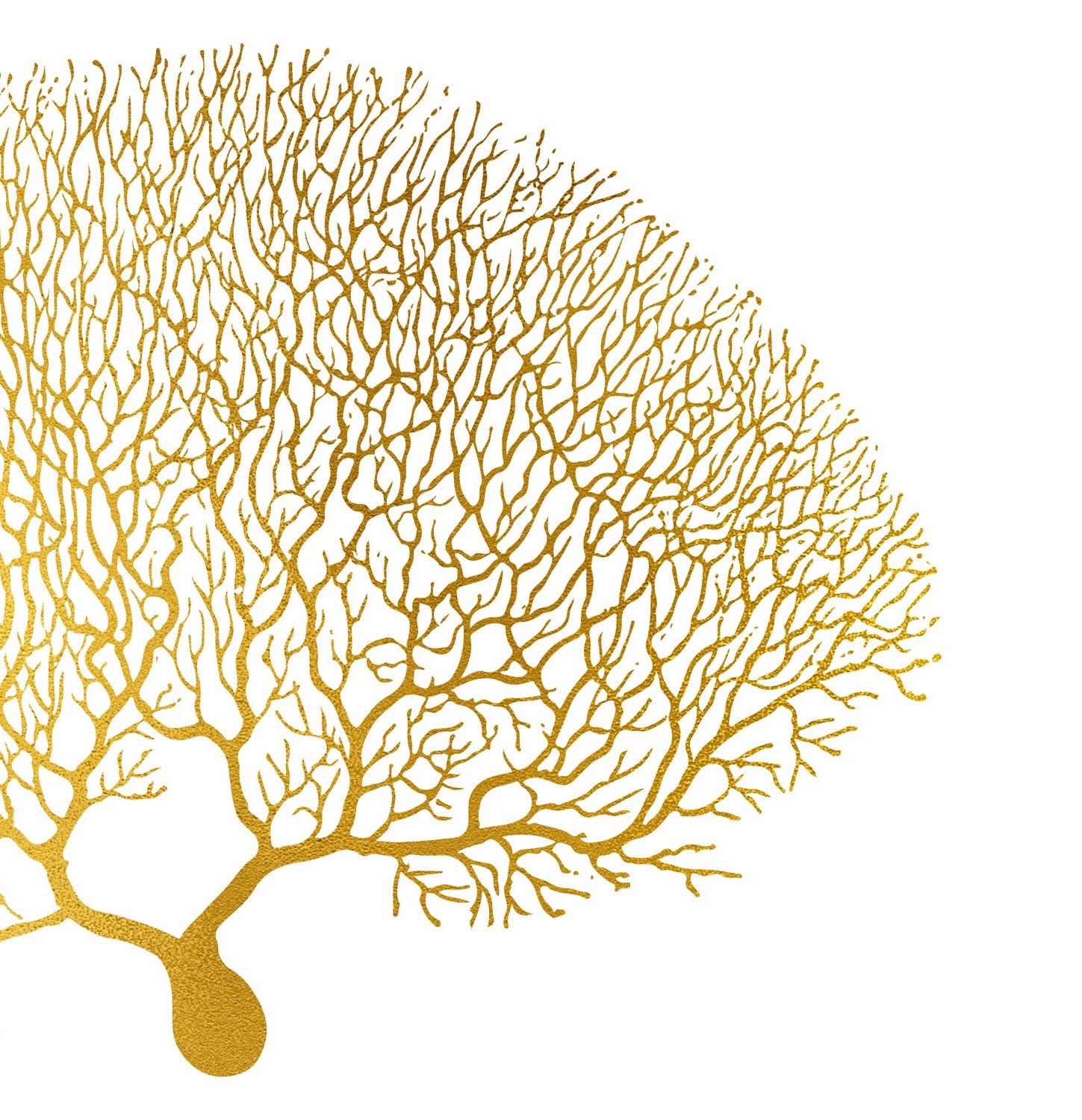
Celebrating 30 Years of Growth, Innovation and Discovery

Scan below to watch 30 Years of Growth, Innovation and Discovery: The Story of the Center for Neuroscience
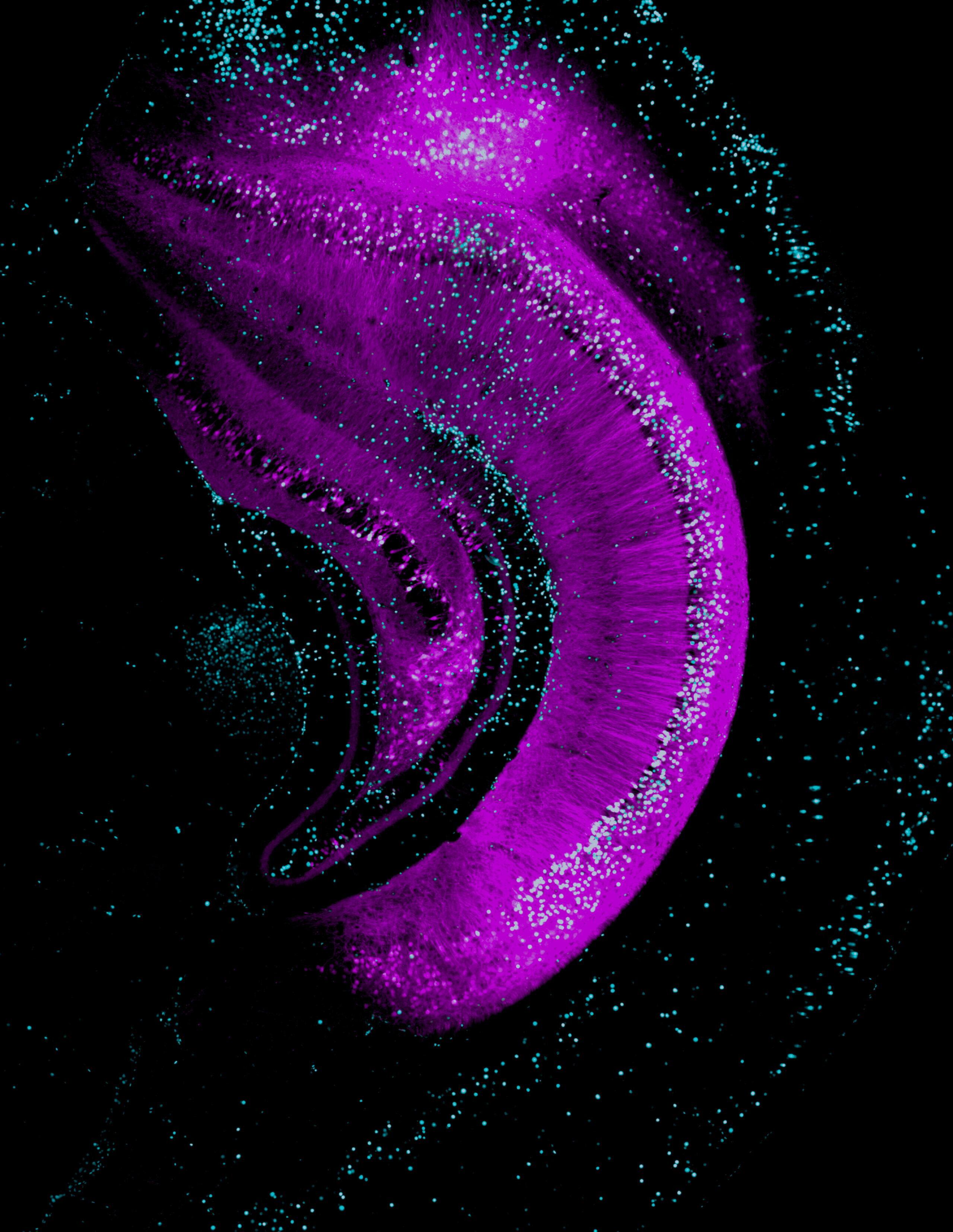
The Center for Neuroscience (CNS) was established 30 years ago as the first interdisciplinary research center at UC Davis and one of the first of its kind in the country.
Although 30 years doesn’t sound like that long to many of us, the accomplishments in the field of neuroscience during this period have been phenomenal.
Thirty years ago, we understood almost nothing about how the brain works. Neuroscience was just starting to become its own field, and the tools to study brain function were only starting to be developed.
CNS faculty were among the early trailblazers in neuroscience, including our first center director, Michael Gazzaniga, who started the field of cognitive neuroscience. Today, our faculty continue to be at the forefront of developing and applying the tools to study brain function and connectivity and leveraging these discoveries to advance treatments and transform technologies to improve lives.
The CNS 30th Anniversary Impact Report is a snapshot of our accomplishments in research, training and public service.
The Center’s success over the past 30 years is deeply rooted in our unique infrastructure, our interdisciplinary approach to neuroscience and the unwavering dedication of our faculty, staff, trainees and philanthropic partners. Thank you for your support! We look forward to celebrating many more successes with you in the years ahead.
Sincerely,
Director, Center for Neuroscience


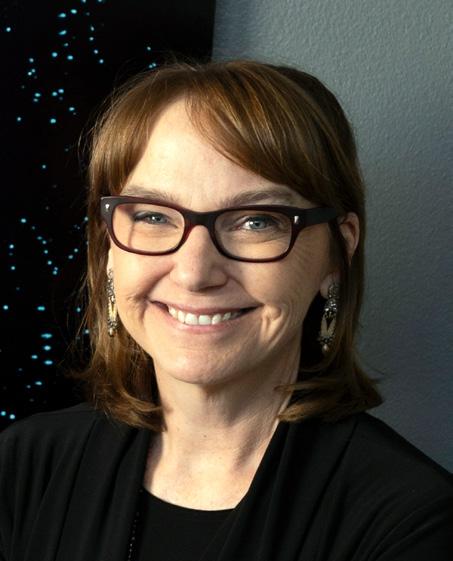
DISCOVERY-DRIVEN RESEARCH
Over the past 30 years, CNS research teams have made discoveries with global impact aimed at developing new treatments and therapies that will improve the lives of people worldwide. From mental health to healthy aging, and from the molecular origins of learning to the wearable tech helping people enhance memory, CNS researchers are pushing the horizons of knowledge in the following key areas for comprehensive brain health:
MEMORY, PLASTICITY AND AGING
CNS labs have made discoveries about the specific brain regions and circuits that mediate memory and the molecules that allow connections to store memories. We are now using that knowledge to develop strategies to enhance memory, to restore it and even prevent disabling neurodevelopmental disorders, including autism spectrum disorder and degenerative diseases like Alzheimer’s disease.


BRAIN DEVELOPMENT
CNS faculty are involved in researching developmental and behavioral disorders at multiple levels. From understanding the molecular, cellular and circuit changes of brain development, to how genetic and environmental factors confer risk for mental health conditions, our scientists aim to translate research findings into new approaches to improve brain disorder diagnosis and treatment.

SENSATION AND PERCEPTION
CNS faculty have made seminal discoveries about how we perceive the world, including through vision and hearing. Our findings are leading to new ideas for how cells and circuits that mediate these senses can be altered to enhance perception and develop better treatments for vision and hearing loss.
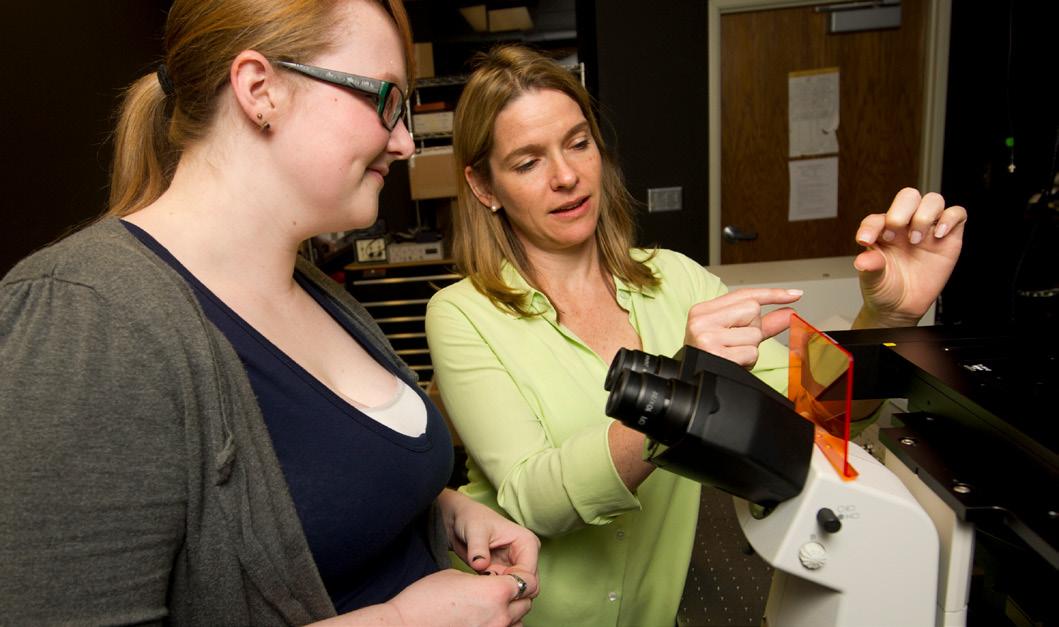 Rishidev Chaudhuri, Ph.D. Assistant Professor of Neurobiology, Physiology and Behavior; Mathematics
Rishidev Chaudhuri, Ph.D. Assistant Professor of Neurobiology, Physiology and Behavior; Mathematics

BEHAVIORAL HEALTH
CNS faculty are working to define the complex circuits that mediate attention, decision-making, executive function, motivation, emotion and reward. With this knowledge, we aim to develop strategies for better diagnosis, treatment and prevention of a range of disorders, including schizophrenia, depression, anxiety, bipolar disorder, ADHD and addiction.
RESEARCH
DISCOVERY-DRIVEN
RESEARCH
42 CORE FACULTY
Bring innovation and interdisciplinary approach to neuroscience research
2,000 PUBLICATIONS
Highlight novel discoveries and research productivity
184 AWARDS Recognize faculty research excellence and mentorship

$256M+ EXTRAMURAL EXPENDITURES
Support research productivity in CNS labs
The Neuroscience Innovation Grant, made possible by the Haskell Robinson Family Neuroscience Research Endowment, Ling-Lie Chau Endowment for the Center for Neuroscience and CNS Director’s Circle, offers pilot research grants for new high-risk, high-reward ideas through an annual fast-pitch competition.
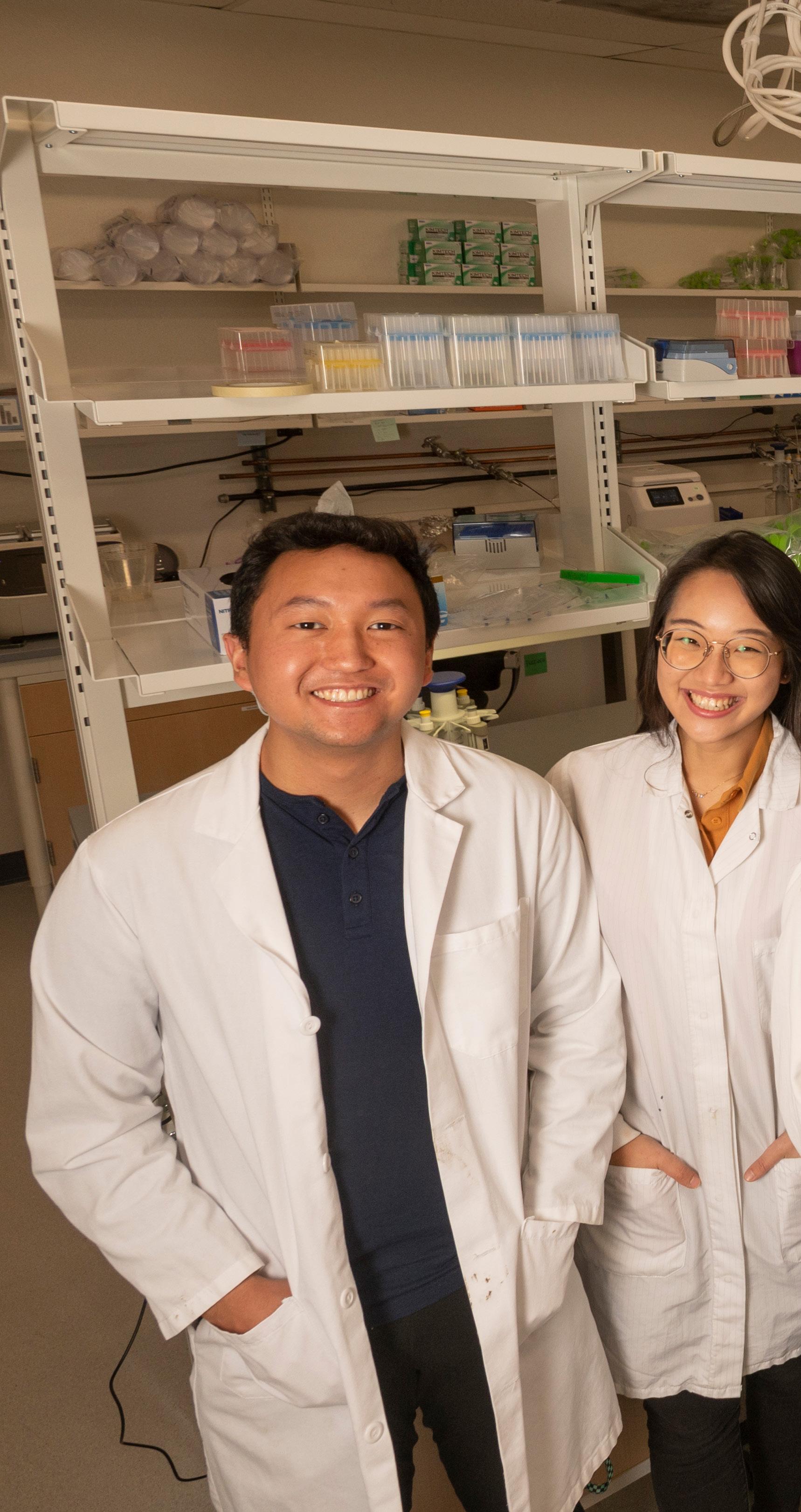
As the hub for interdisciplinary research, the Center for Neuroscience helped to establish the UC Davis Neuroscience Consortium, bringing together all the major centers and departments in neuroscience at UC Davis. With more than 300 faculty members addressing some aspect of neuroscience research, the Consortium is one of the strongest groups of neuroscientists anywhere in the world. Together, we are working to tackle some of the grandest challenges that our society faces as we move forward in the next 30 years. Learn more at ucdnc.ucdavis.edu.
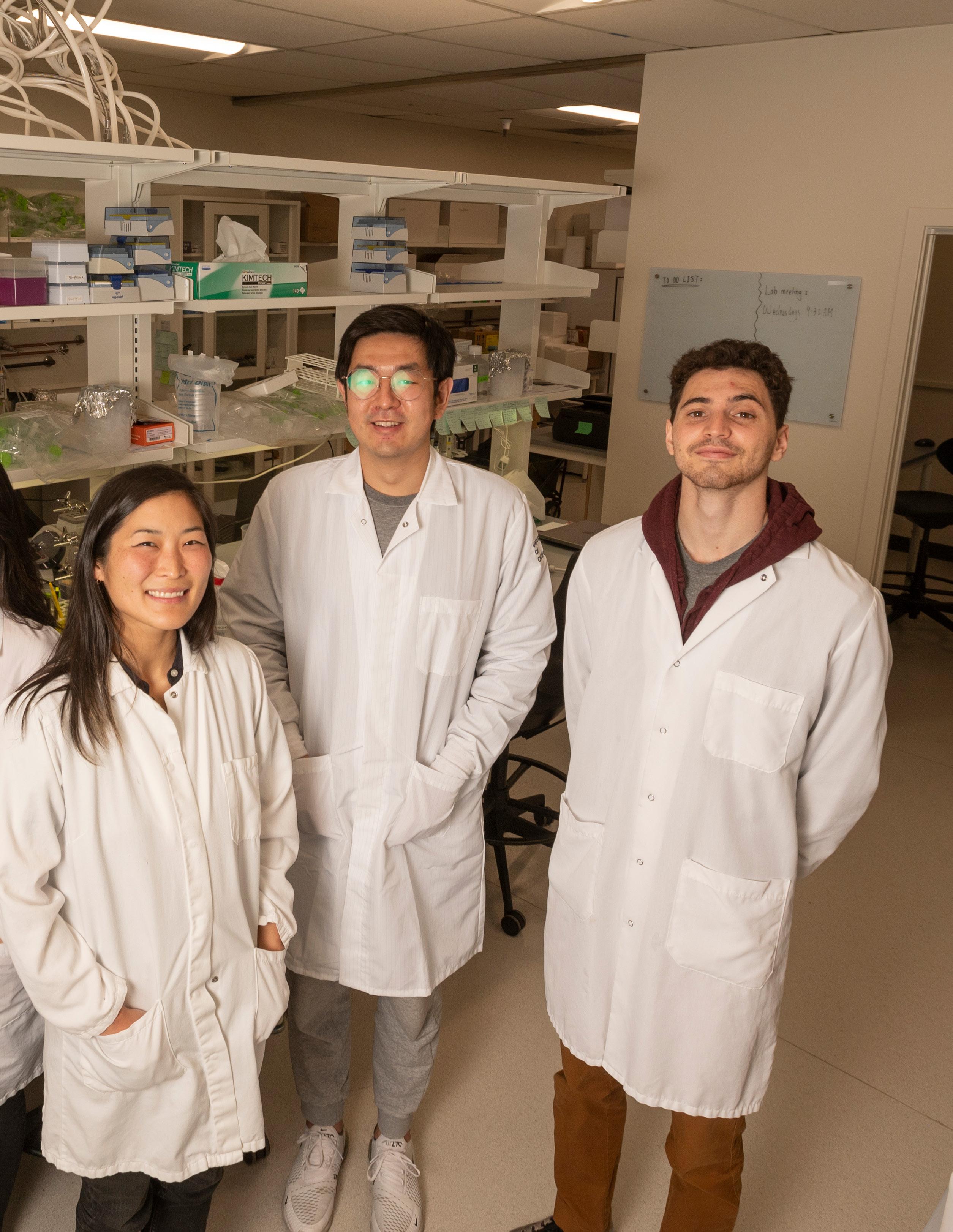
TRAINING WITH A GLOBAL REACH


The Center’s national and international reputation for excellence attracts top postdoctoral scholars and the brightest graduate students and undergraduate researchers, who contribute to an ecosystem of innovation and cutting-edge science. Trainees have access to prestigious training programs funded by the National Institutes of Health and inclusive opportunities, such as the Seminar Outreach for Minority Advocacy (SOMA) and the Neuroscience Initiative to Enhance Diversity (NIED).
334 TRAINEES launched their academic and industry careers from CNS labs
92% Live in 38 states in the U.S.
8% Live abroad in 25 countries
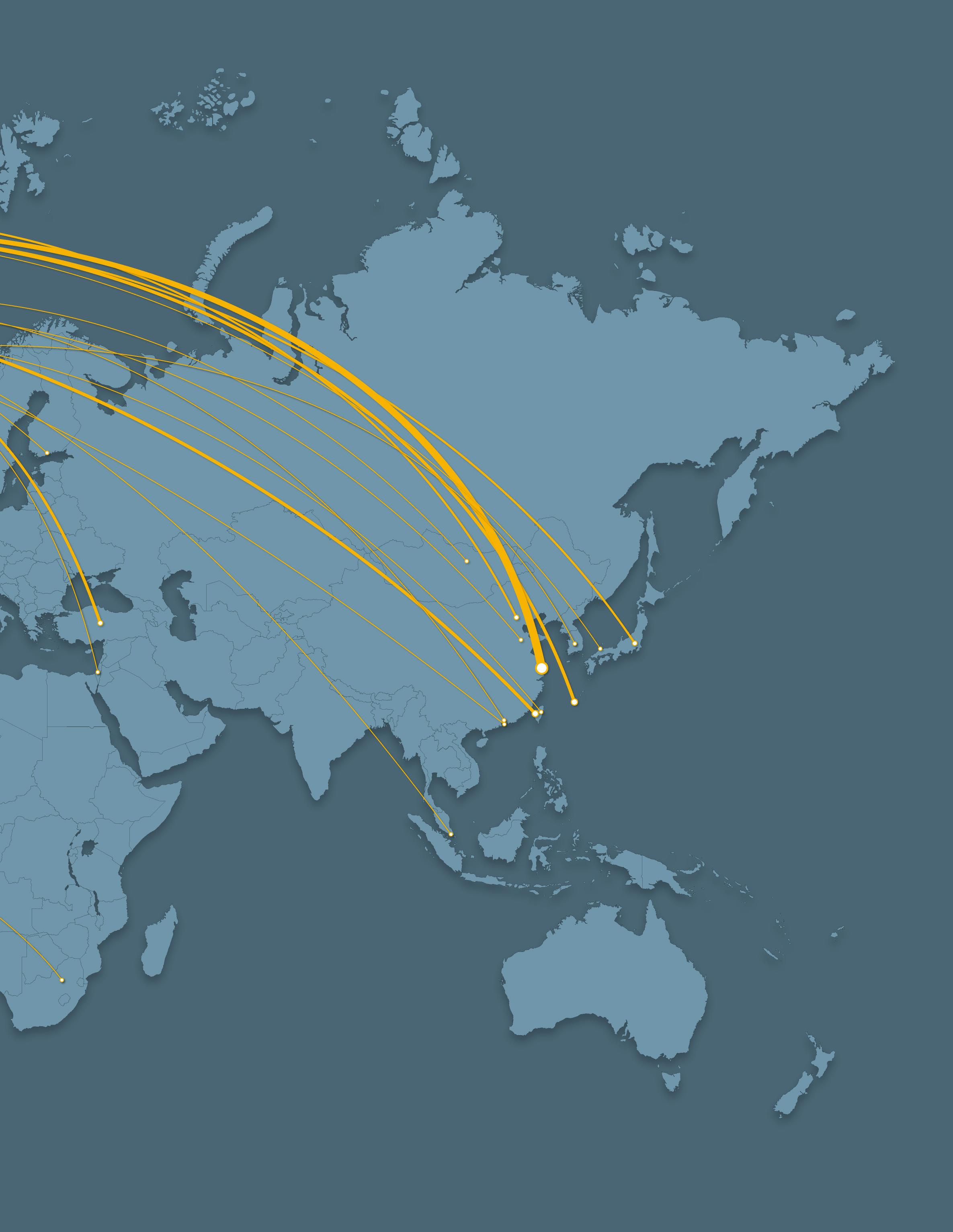
40% Live in California
Because of its unique structure, the Center attracts a special kind of scientist with a deep appreciation for interdisciplinary research and collaboration. We have grown over the past 30 years, starting in the 1990s with 14 faculty and 33 trainees, and now supporting 24 faculty and almost 150 trainees.

ENGAGING THE COMMUNITY
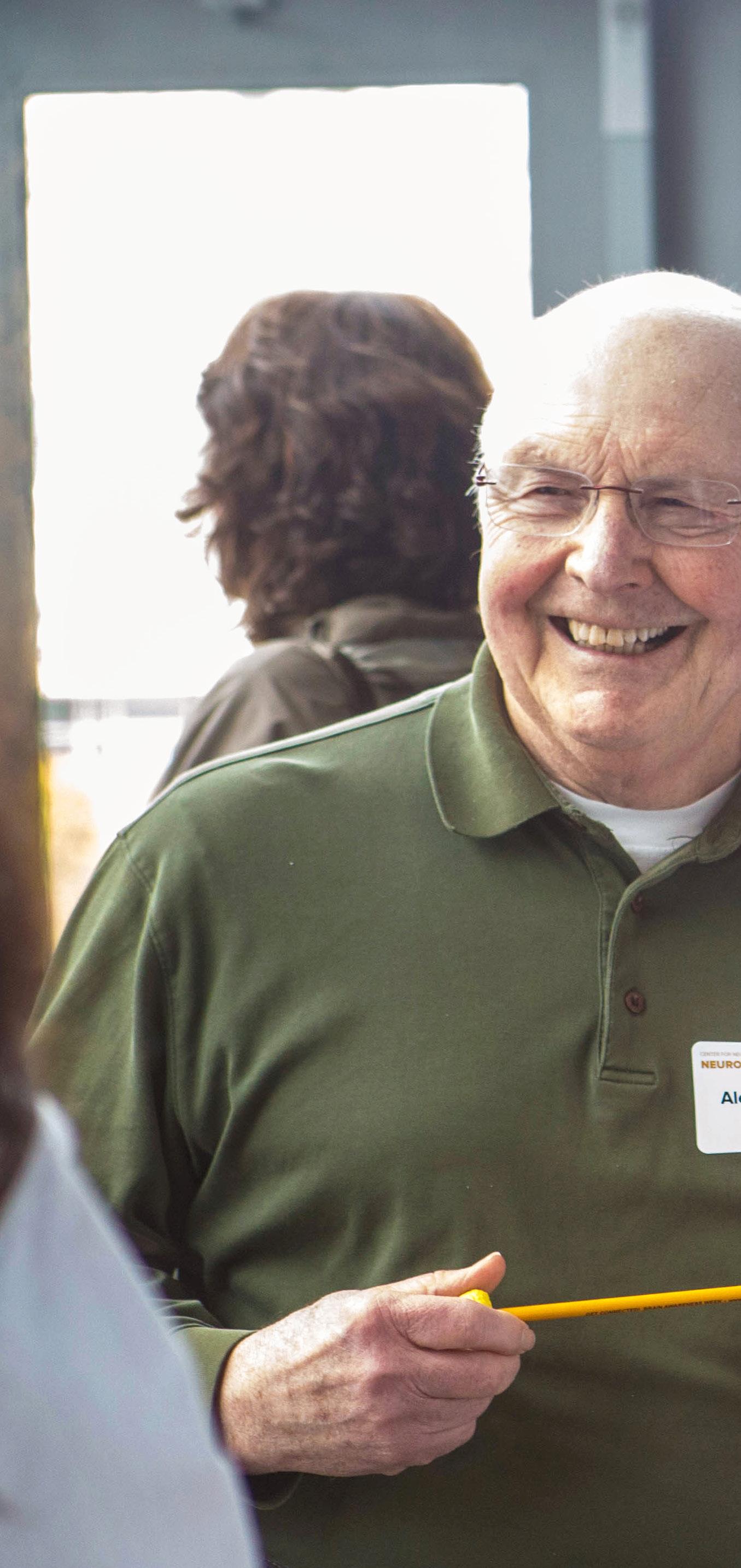
Educating and sharing exciting discoveries in brain research with community members is an important part of the CNS mission. We are proud to bring neuroscientists, students, families, schools and communities together through a number of outreach programs.

VIRTUAL ENGAGEMENT
The pandemic presented us with the opportunity to expand our reach. CNS faculty participate in numerous webinars and present their research to national and international communities worldwide.

COMMUNITY OUTREACH
In addition to NeuroFest, the CNS Community Outreach Fund, made possible by annual gifts from faculty, staff, alumni and friends, supports our K–12 education program. Faculty and graduate students bring neuroscience to the classroom, making presentations and providing hands-on learning activities to K–12 students at elementary schools throughout the Sacramento, Davis and Woodland regions.
Every March to celebrate Brain Awareness Week, CNS hosts NeuroFest, a one-day free public event for community members of all ages. Attendees enjoy public lectures by faculty on the latest brain research, hands-on interactive activities, a NeuroArt competition and a research poster contest presented by our graduate students.
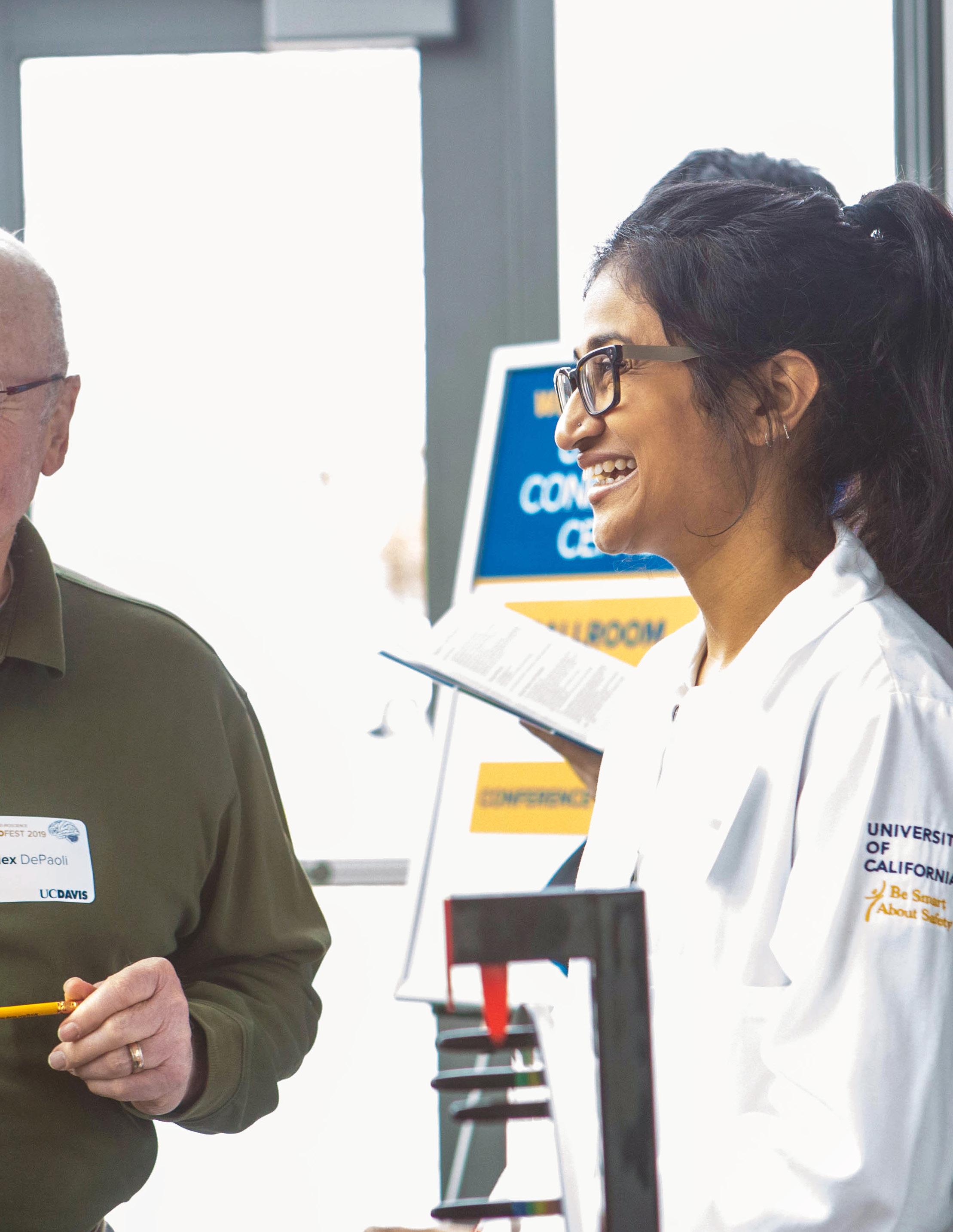
THE IMPACT OF PHILANTHROPY
434 DONORS Inspire and motive neuroscience excellence every day
$4.9M GIFTS FROM INDIVIDUALS
Help accelerate discoveries and train the next generation of neuroscience leaders
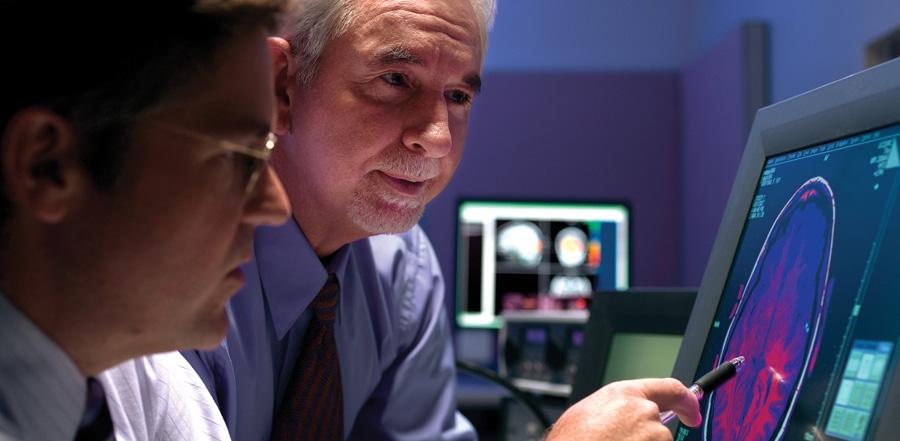
14 ENDOWMENTS
Provide enduring support for research, training and programs
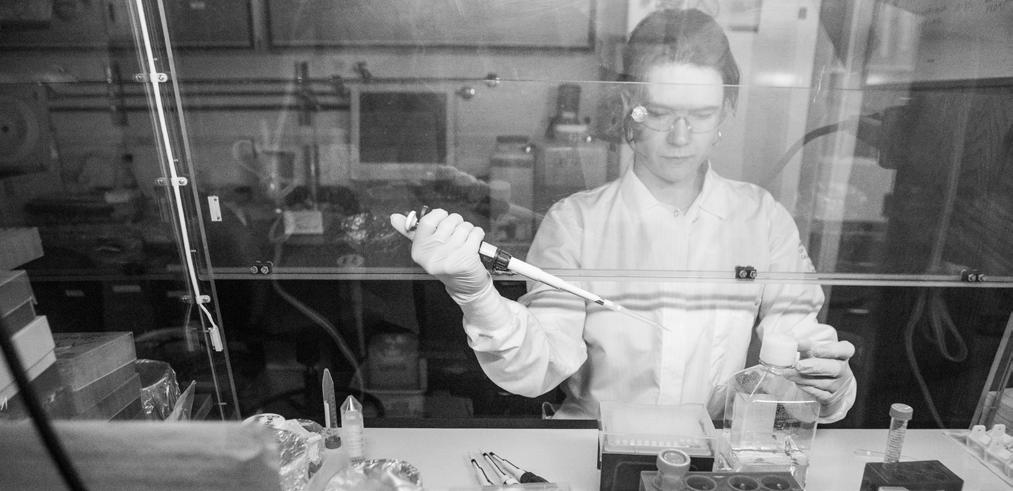
First-ever at CNS, the C. Bryan Cameron Presidential Chair in Neuroscience brings prestige and scholarly support to outstanding faculty who conduct research that benefits human mental health.
Travel awards, like the Barbara Chapman Neuroscience Award, David L. Weaver Award and the Victor and Meg Chan Graduate Student Award, enable graduate trainees to attend scientific meetings that enhance their knowledge and expand their professional networks.
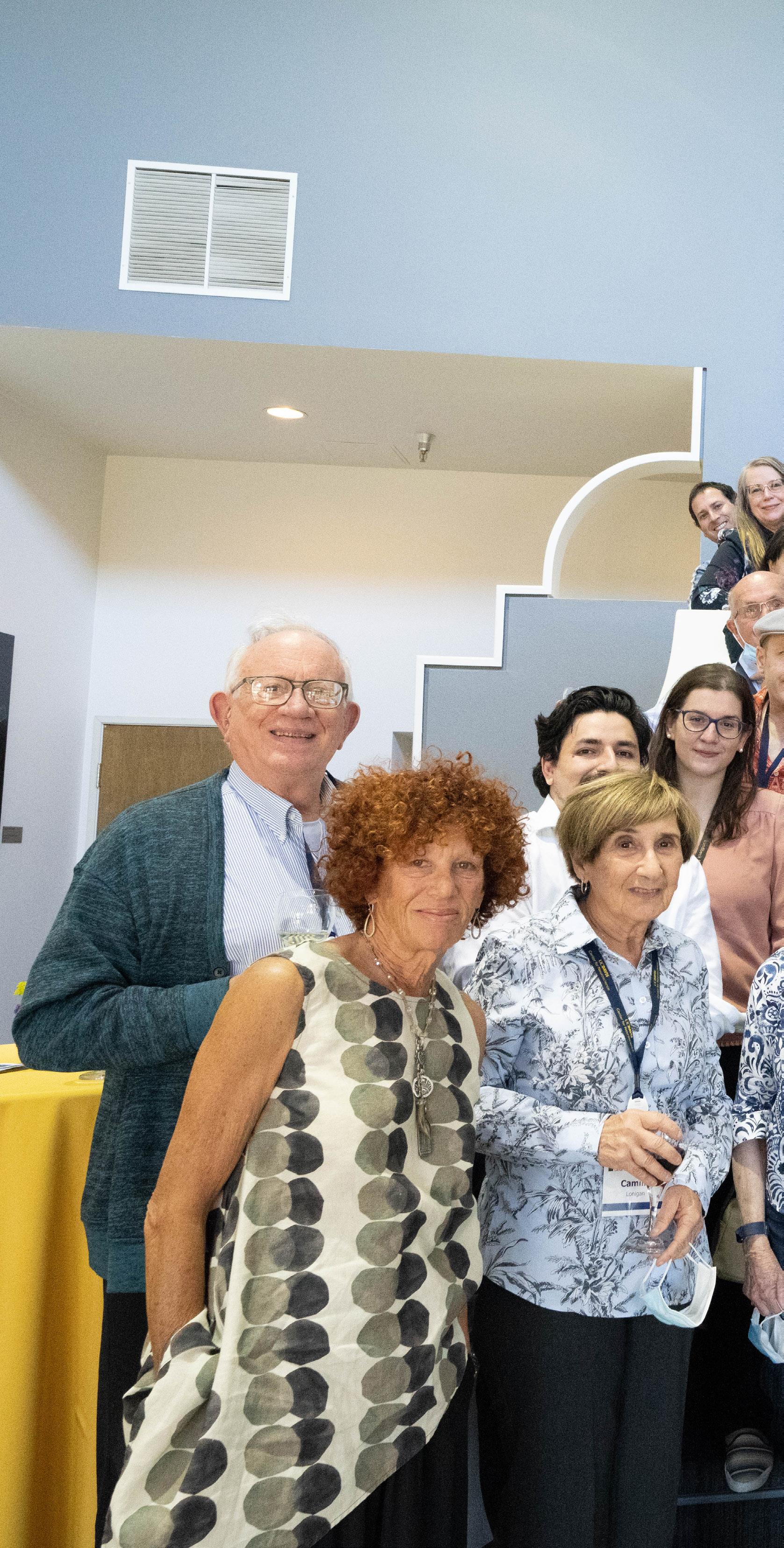
Current and future gifts for research, such as the Janet A. Neff Research Innovation Fund and the Lonigan Family Innovative Pilot Research Fund for Early Onset Dementia, keep the Center at the forefront of discovery.


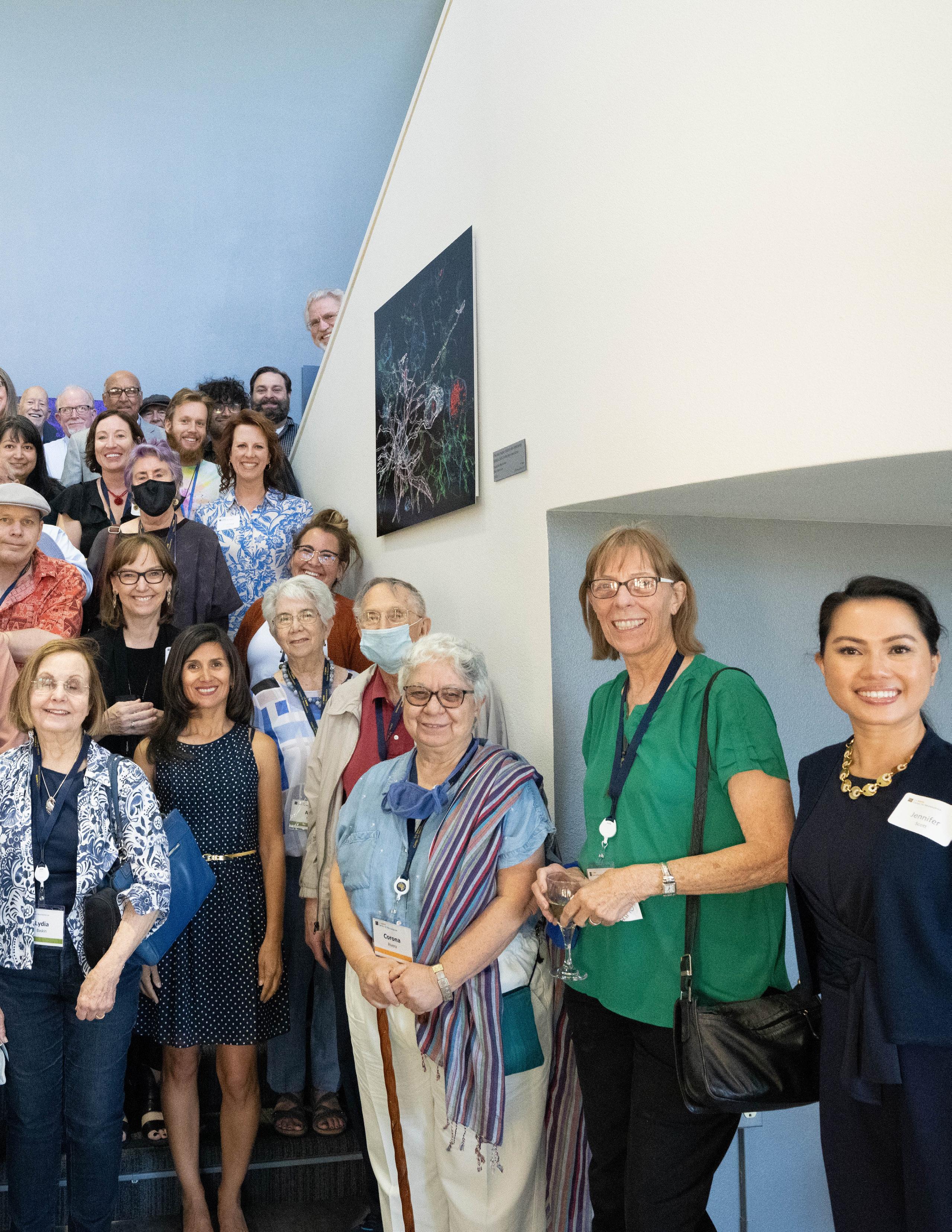
The Center for Neuroscience embarked on an active effort to increase philanthropic funding to support our mission in 2013. Generosity from current and emeriti faculty, staff, trainees, alumni and friends provides critical support and innovative solutions for research, training and programs not available or supported by private or public grants. We are deeply grateful for our philanthropic partners who are supporting us today and to those who have thoughtfully provided for the Center’s future in their estate plan.
The Karen Sigvardt, Ph.D. Neuroscience Award and Fellowship Endowments, the first of their kind under CNS’s Diversity, Equity and Inclusion Program, provide travel grants and research support to underrepresented graduate students in neuroscience.
CELEBRATING 30 YEARS OF EXCELLENCE
CNS former directors, UC Davis leadership, faculty, staff, trainees and special guests celebrated the Center’s milestone anniversary October 8, 2022, in the beautiful UC Davis Good Life Garden at the Robert Mondavi Institute for Food and Wine Science.






One of the highlights of the evening was the announcement that the main CNS building at 1544 Newton Court, Davis will be named the Robert D. Grey Hall in honor of Dr. Robert Grey, who established the Center in 1992. We are deeply grateful for Bob and Kathleen Grey’s visionary leadership, support and generosity. The building dedication will be held in 2023.
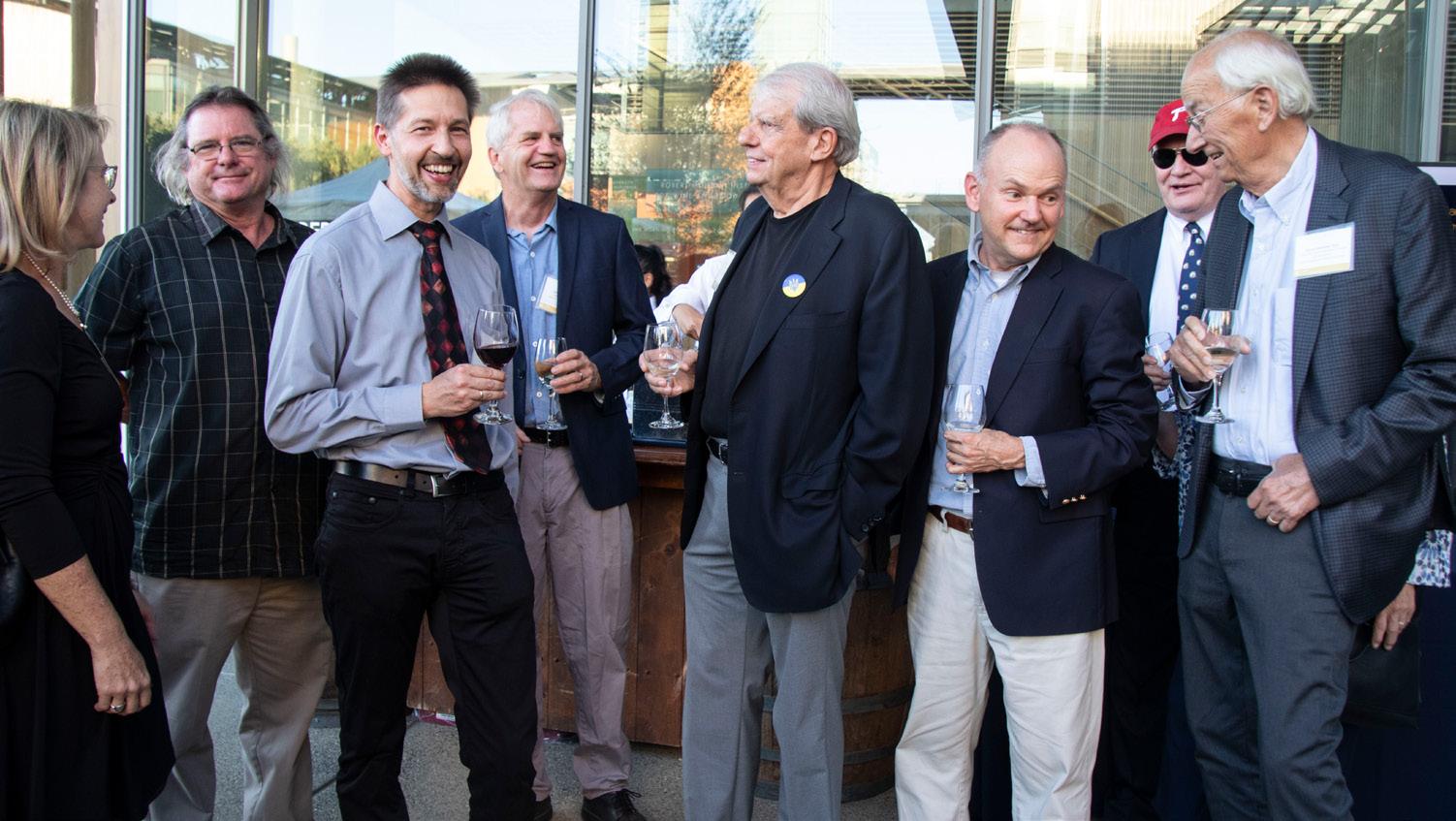 Marie Burns, Ph.D.; Gregg Recanzone, Ph.D.; Jochen Ditterich, Ph.D.; Ken Britten, Ph.D.; Leo Chalupa, Ph.D.; Bruno Olshausen, Ph.D.; Ron Smith and Michael Gazzaniga, Ph.D.
Michael Gazzaniga, and Leo Chalupa,
Gabrielle Sell, Ph.D. and Ling-Lie Chau, Ph.D.
Katrina Spridgen and Jennifer Whistler, Ph.D.
Mitch Sutter, Ph.D. and Buck Marcussen
CNS 30th Anniversary Celebration
Joel Grey, Pilar Gonzalez-Grey, Mary Croughan,Ph.D., Robert Grey, Ph.D., Kathleen Grey, Erin Merritt, Mark Merritt and Kimberley McAllister, Ph.D.
Marie Burns, Ph.D.; Gregg Recanzone, Ph.D.; Jochen Ditterich, Ph.D.; Ken Britten, Ph.D.; Leo Chalupa, Ph.D.; Bruno Olshausen, Ph.D.; Ron Smith and Michael Gazzaniga, Ph.D.
Michael Gazzaniga, and Leo Chalupa,
Gabrielle Sell, Ph.D. and Ling-Lie Chau, Ph.D.
Katrina Spridgen and Jennifer Whistler, Ph.D.
Mitch Sutter, Ph.D. and Buck Marcussen
CNS 30th Anniversary Celebration
Joel Grey, Pilar Gonzalez-Grey, Mary Croughan,Ph.D., Robert Grey, Ph.D., Kathleen Grey, Erin Merritt, Mark Merritt and Kimberley McAllister, Ph.D.
Scan below to see more photos taken at the CNS 30th Anniversary Celebration
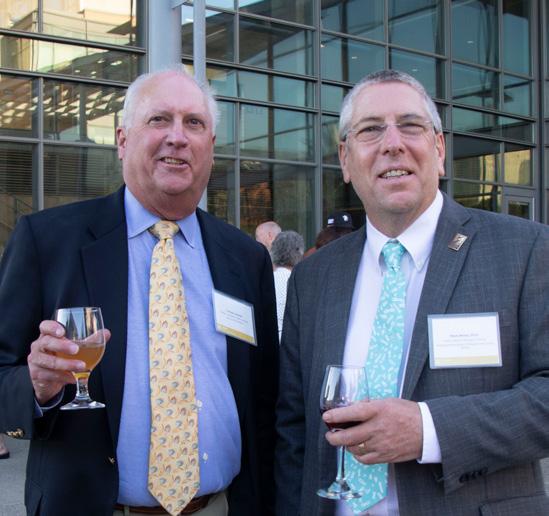
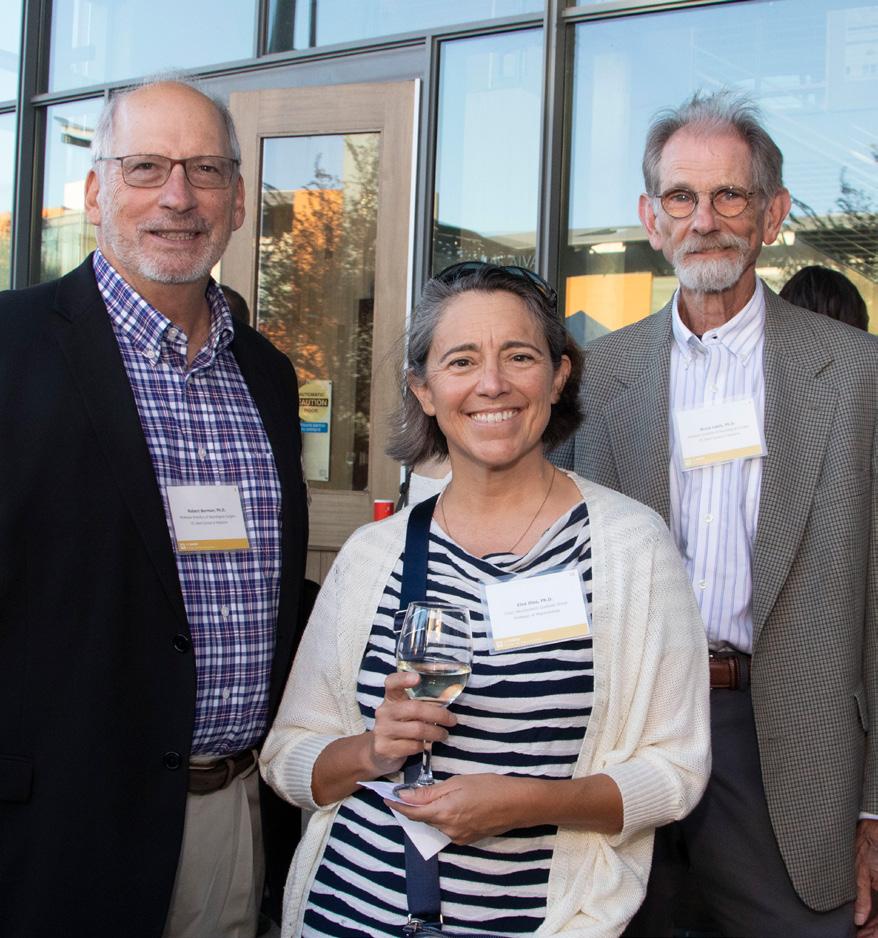
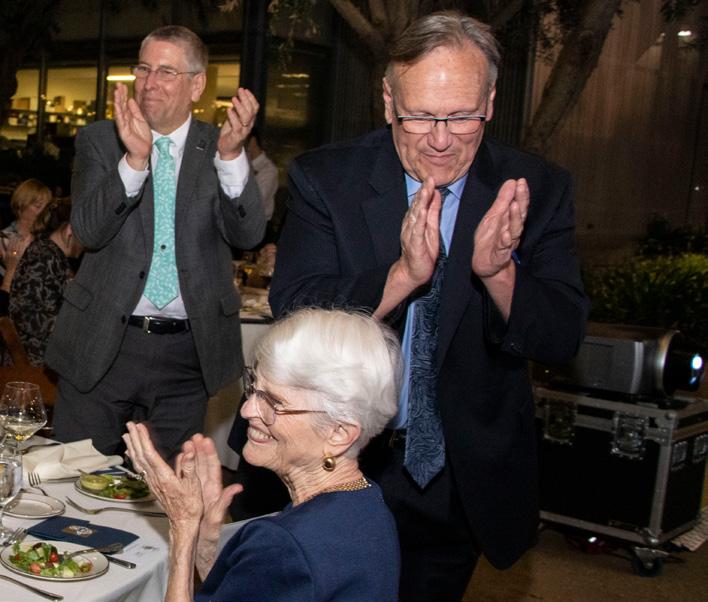
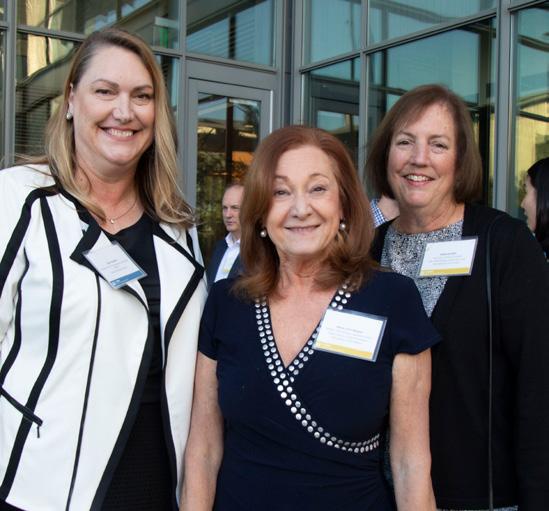
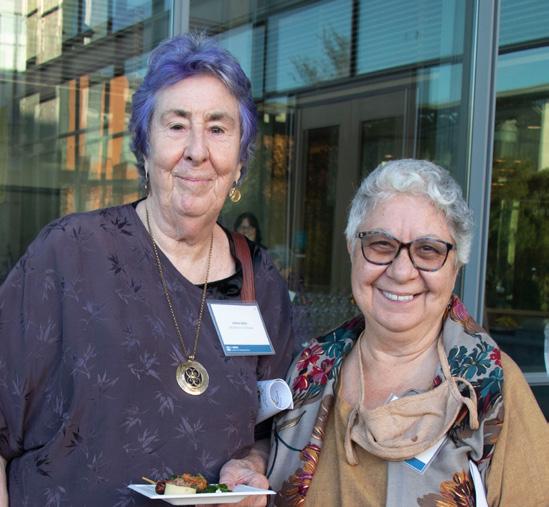
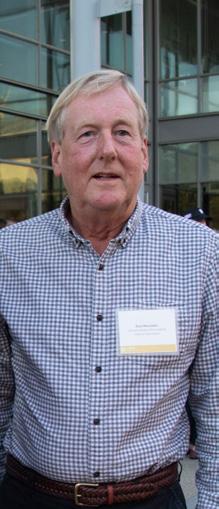
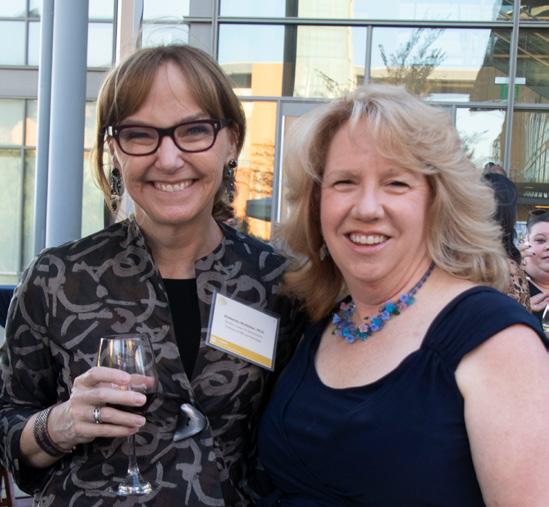

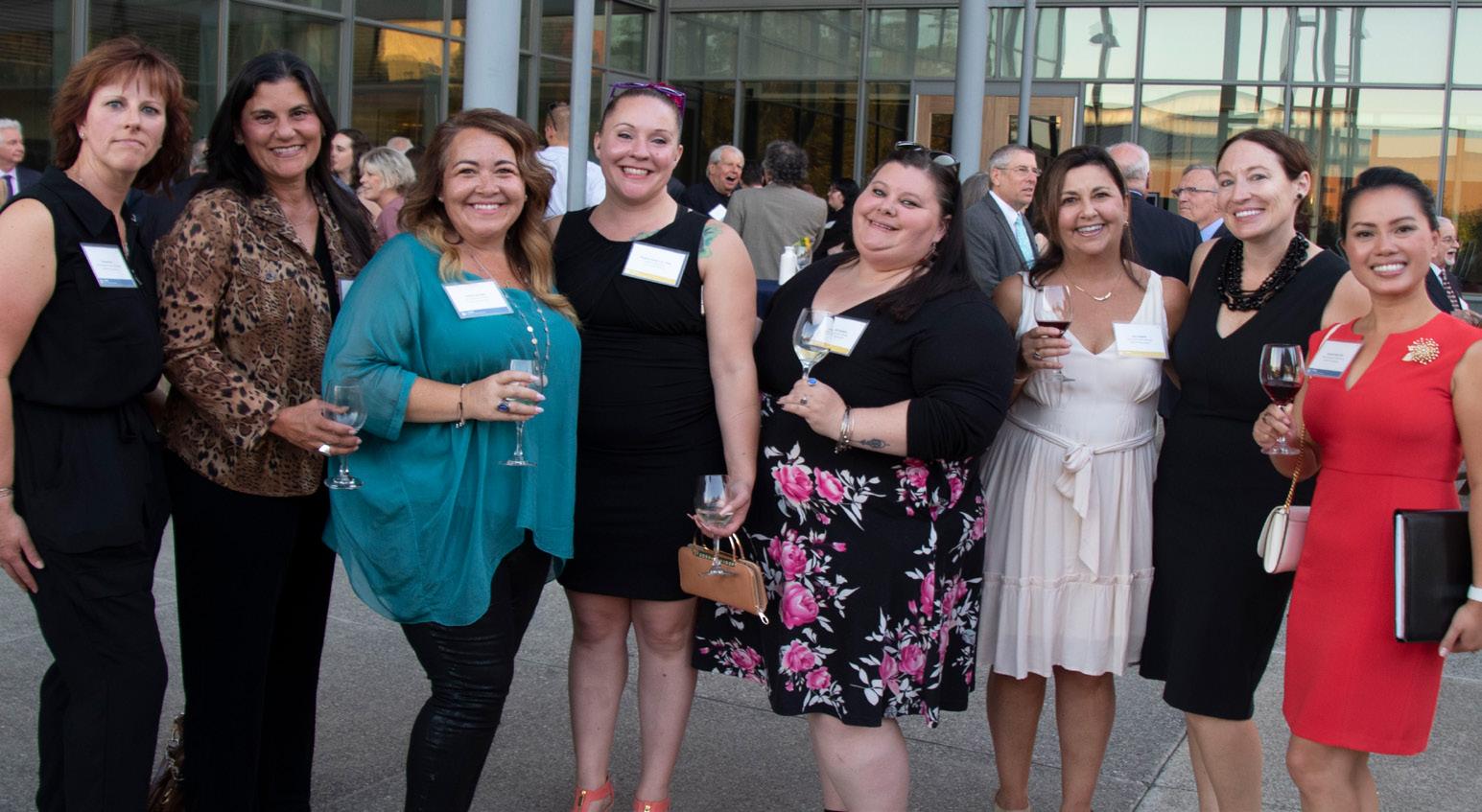
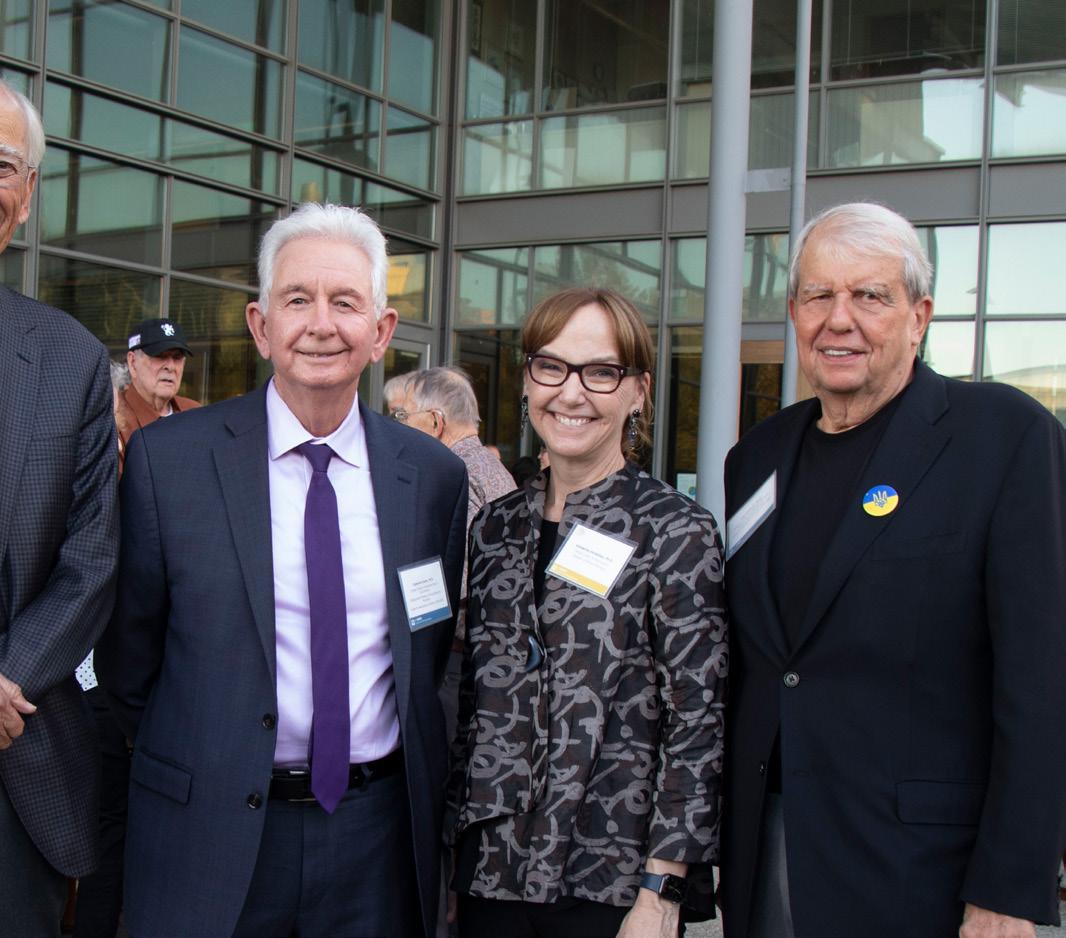

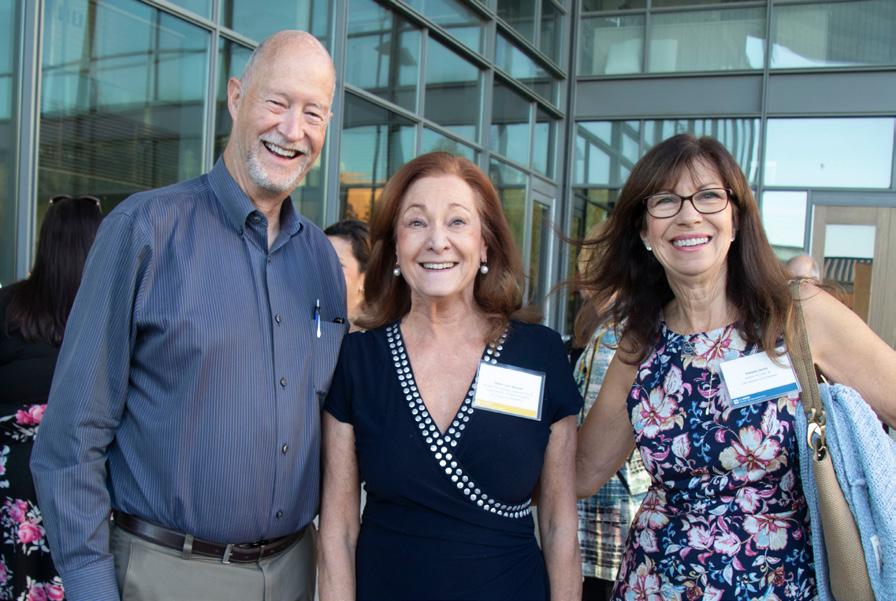 Jeffrey Jarvis, D.D.S., Lin Weaver and Pamela Jarvis
Cameron Carter, M.D., Kimberley McAllister, Ph.D. and Ron Mangun, Ph.D.
Gazzaniga, Ph.D.; Cameron Carter, M.D.; Kimberley McAllister, Ph.D. Chalupa, Ph.D.
Theresa Geer, Christine Cossman, Katrina Spridgen, Kristine Donis-Cox, D.V.M., Melanie Lansford, Lisa Laughlin, Kimberly Cummings and Jennifer Scott
Meg Chan, Victor Chan, Johanna Kwan and Kevin Hague
Kimberley McAllister, Ph.D. and Mary Croughan, Ph.D. Marcussen
Audrey Webb and Corona Rivera
Shari Kawelo, Lin Weaver and Deborah Neff
Robert Berman, Ph.D., Elva Diaz, Ph.D. and Bruce Lyeth, Ph.D.
Bryan Cameron and Mark Winey, Ph.D.
Jeffrey Jarvis, D.D.S., Lin Weaver and Pamela Jarvis
Cameron Carter, M.D., Kimberley McAllister, Ph.D. and Ron Mangun, Ph.D.
Gazzaniga, Ph.D.; Cameron Carter, M.D.; Kimberley McAllister, Ph.D. Chalupa, Ph.D.
Theresa Geer, Christine Cossman, Katrina Spridgen, Kristine Donis-Cox, D.V.M., Melanie Lansford, Lisa Laughlin, Kimberly Cummings and Jennifer Scott
Meg Chan, Victor Chan, Johanna Kwan and Kevin Hague
Kimberley McAllister, Ph.D. and Mary Croughan, Ph.D. Marcussen
Audrey Webb and Corona Rivera
Shari Kawelo, Lin Weaver and Deborah Neff
Robert Berman, Ph.D., Elva Diaz, Ph.D. and Bruce Lyeth, Ph.D.
Bryan Cameron and Mark Winey, Ph.D.
The Center for Neuroscience is the interdisciplinary hub for neuroscience research and training at UC Davis. We conduct cutting-edge research at all levels of the nervous system, from genes to behavior and through all stages of life. We are committed to training the next generation of scientists and engaging the public in neuroscience research.
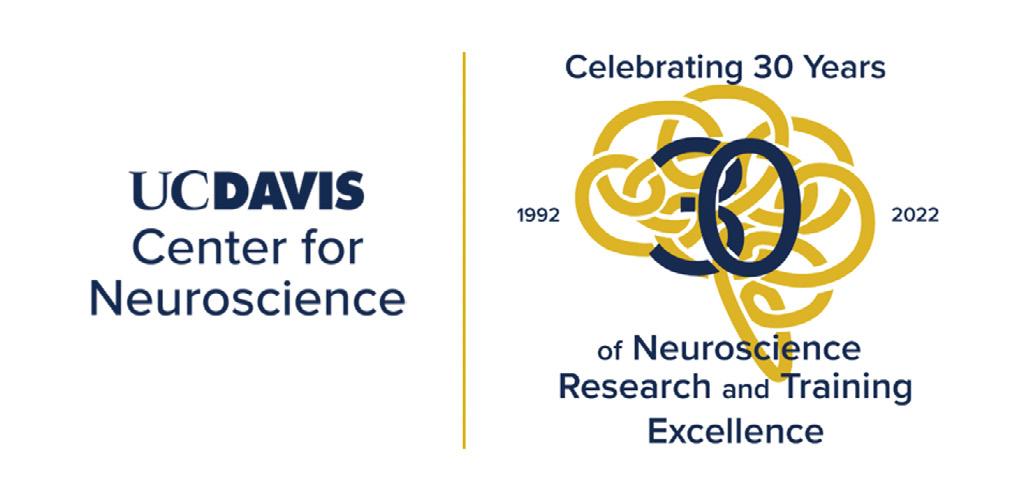
Our commitment to diversity, equity and inclusion permeates and elevates every aspect of our community.
Our mission is to reveal how the brain works and to leverage these discoveries to promote health, advance treatments and cures for neurological and psychiatric disorders and to transform next generation technologies to improve lives.
Learn more at neuroscience.ucdavis.edu
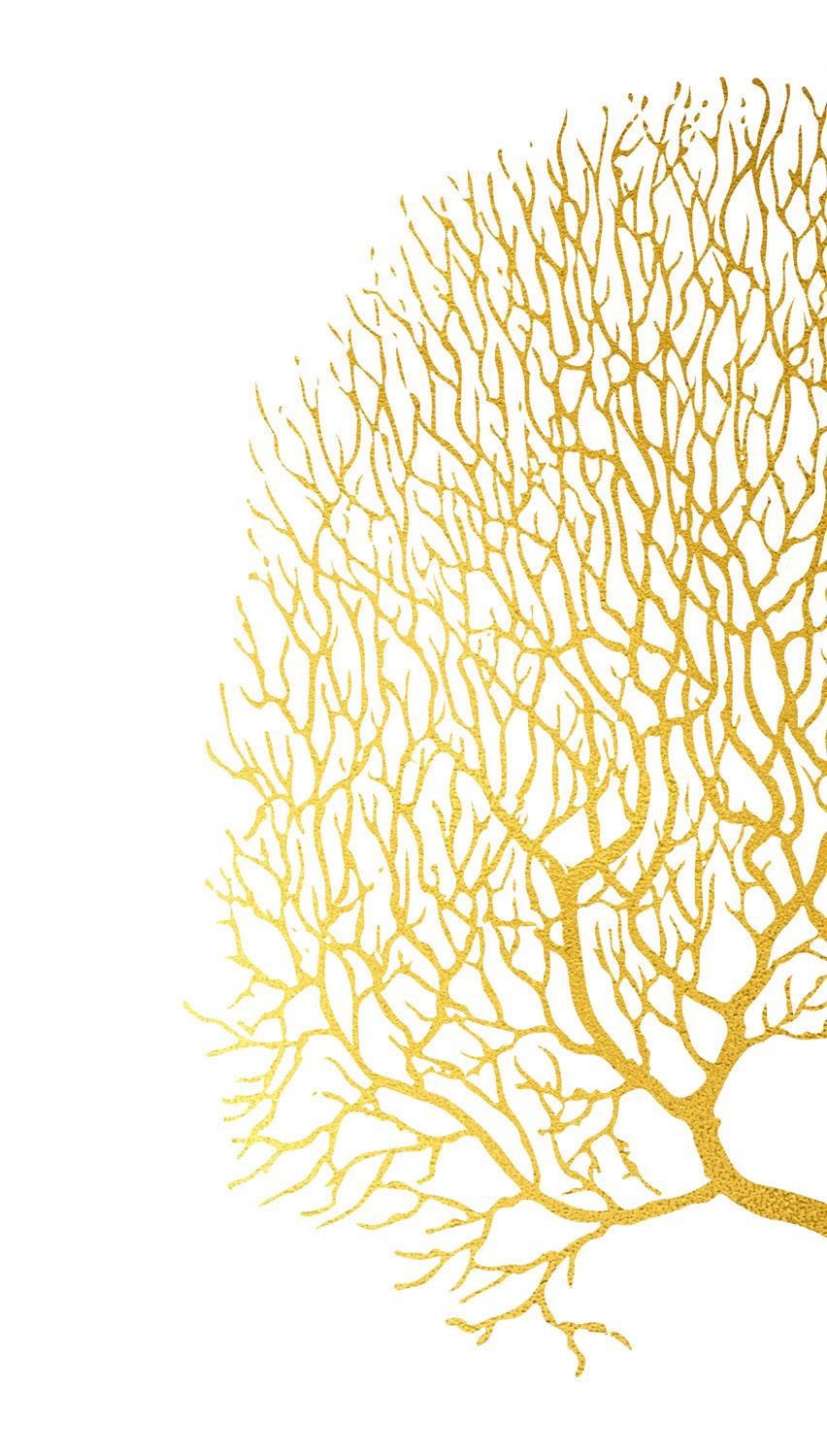










 Rishidev Chaudhuri, Ph.D. Assistant Professor of Neurobiology, Physiology and Behavior; Mathematics
Rishidev Chaudhuri, Ph.D. Assistant Professor of Neurobiology, Physiology and Behavior; Mathematics
























 Marie Burns, Ph.D.; Gregg Recanzone, Ph.D.; Jochen Ditterich, Ph.D.; Ken Britten, Ph.D.; Leo Chalupa, Ph.D.; Bruno Olshausen, Ph.D.; Ron Smith and Michael Gazzaniga, Ph.D.
Michael Gazzaniga, and Leo Chalupa,
Gabrielle Sell, Ph.D. and Ling-Lie Chau, Ph.D.
Katrina Spridgen and Jennifer Whistler, Ph.D.
Mitch Sutter, Ph.D. and Buck Marcussen
CNS 30th Anniversary Celebration
Joel Grey, Pilar Gonzalez-Grey, Mary Croughan,Ph.D., Robert Grey, Ph.D., Kathleen Grey, Erin Merritt, Mark Merritt and Kimberley McAllister, Ph.D.
Marie Burns, Ph.D.; Gregg Recanzone, Ph.D.; Jochen Ditterich, Ph.D.; Ken Britten, Ph.D.; Leo Chalupa, Ph.D.; Bruno Olshausen, Ph.D.; Ron Smith and Michael Gazzaniga, Ph.D.
Michael Gazzaniga, and Leo Chalupa,
Gabrielle Sell, Ph.D. and Ling-Lie Chau, Ph.D.
Katrina Spridgen and Jennifer Whistler, Ph.D.
Mitch Sutter, Ph.D. and Buck Marcussen
CNS 30th Anniversary Celebration
Joel Grey, Pilar Gonzalez-Grey, Mary Croughan,Ph.D., Robert Grey, Ph.D., Kathleen Grey, Erin Merritt, Mark Merritt and Kimberley McAllister, Ph.D.











 Jeffrey Jarvis, D.D.S., Lin Weaver and Pamela Jarvis
Cameron Carter, M.D., Kimberley McAllister, Ph.D. and Ron Mangun, Ph.D.
Gazzaniga, Ph.D.; Cameron Carter, M.D.; Kimberley McAllister, Ph.D. Chalupa, Ph.D.
Theresa Geer, Christine Cossman, Katrina Spridgen, Kristine Donis-Cox, D.V.M., Melanie Lansford, Lisa Laughlin, Kimberly Cummings and Jennifer Scott
Meg Chan, Victor Chan, Johanna Kwan and Kevin Hague
Kimberley McAllister, Ph.D. and Mary Croughan, Ph.D. Marcussen
Audrey Webb and Corona Rivera
Shari Kawelo, Lin Weaver and Deborah Neff
Robert Berman, Ph.D., Elva Diaz, Ph.D. and Bruce Lyeth, Ph.D.
Bryan Cameron and Mark Winey, Ph.D.
Jeffrey Jarvis, D.D.S., Lin Weaver and Pamela Jarvis
Cameron Carter, M.D., Kimberley McAllister, Ph.D. and Ron Mangun, Ph.D.
Gazzaniga, Ph.D.; Cameron Carter, M.D.; Kimberley McAllister, Ph.D. Chalupa, Ph.D.
Theresa Geer, Christine Cossman, Katrina Spridgen, Kristine Donis-Cox, D.V.M., Melanie Lansford, Lisa Laughlin, Kimberly Cummings and Jennifer Scott
Meg Chan, Victor Chan, Johanna Kwan and Kevin Hague
Kimberley McAllister, Ph.D. and Mary Croughan, Ph.D. Marcussen
Audrey Webb and Corona Rivera
Shari Kawelo, Lin Weaver and Deborah Neff
Robert Berman, Ph.D., Elva Diaz, Ph.D. and Bruce Lyeth, Ph.D.
Bryan Cameron and Mark Winey, Ph.D.

